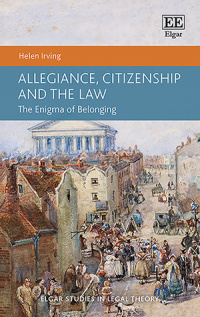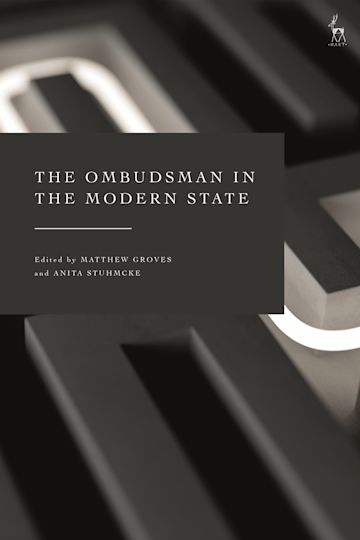2022-24 Fellow Spotlight A selection of books and other contributions to the law from Fellows of the Academy. |
A collection of papers, speeches and chapters of Academy Fellow the Hon James Allsop AC has been published as The Humanity of Law by Federation Press, in association with the Australian Academy of Law. As the editors, Ruth Higgins SC and Kevin Connor SC, state in their introduction to the book: “A pervasive concern of the Honourable James Allsop AC, in both his judicial and extra-judicial writings, has been the pursuit of the often ineffable, but always necessary, human element in the law.” The book is divided into six parts and contains 18 papers, speeches and chapters which cover the nature of law and public power, the profession and judiciary, and substantive aspects of equity, statute, commercial, and maritime law. The result is a book that reveals the continuities and evolution of Allsop’s thinking, and his significant contribution to legal thinking and to public life. The book was launched on 27 November 2024 by the Hon Chief Justice Stephen Gageler AC who has provided a foreword to the book. The publisher lists the parts and chapters of the book as follows: Introduction: From Analysis to Synthesis: RCA Higgins SC & K Connor SC Further details about the book including as to purchase are at this link. The Humanity of Law - The Federation Press |
|  |
Academy Fellows Emeritus Professor Robyn Creyke AO, Professor Matthew Groves and Emeritus Professor John McMillan AO, and Mr Mark Smyth, have produced the 7th edition of Control of Government Action: Text, Cases and Commentary, Lexis Nexis, 2024. Professor Groves has recently been appointed to the re-established Administrative Review Council, a body which is explained in the book. As the publisher explains: This highly respected work provides clear, detailed coverage of the legal controls on government decision-making in each Australian jurisdiction, supported by extracts from legislation, cases and commentary. It covers the public law concepts and theories that influence government decision-making and administrative review, and the different roles played by courts, tribunals, ombudsmen and other review bodies. The criteria applied by those bodies in reviewing the legality and propriety of government administrative action are examined in an integrated manner that best shows the options available to an aggrieved person. The seventh edition has been fully revised and updated with important recent developments in case law and legislation including:
Features
Other details, including as to purchase, are at this link: Control of Government Action: Text, Cases and Commentary, 7th edition |
| Professor Robin Creyke
Professor Matthew Groves Professor John McMillan |
Academy Fellow Professor Erika Techera and Dr Joy McCann have had published The Unruly Ocean - Law and Justice in the World's Oceans, Seas and Shorelines. As the publisher, Routledge, explains: This book introduces non-specialist readers to the history of how human societies have sought to control, use and exploit our oceans, seas and shorelines over time in different geographical and cultural contexts. The Unruly Ocean examines the development of the modern international legal regime – the law of the sea, maritime law, marine environmental and pollution law, fisheries regulation, and underwater cultural heritage law – and considers how effective these laws have been in addressing the many challenges facing marine and coastal environments ranging from piracy and war to oil spills and the extraction of marine resources. It concludes by discussing the socio-ecological crises facing the world’s oceans, seas and shorelines, and explores current ideas for reimagining a legal regime that restores the health of our oceanic realm and offers a more holistic, transboundary, rights-based approach to ocean governance. This book will be of value to law and non-law undergraduate and postgraduate students, as well as research scholars and other educated audiences interested in a legal history of the world’s oceans, seas and shorelines. Further details from the publisher, including as to purchase, are at this link: The Unruly Ocean |
|
|
Academy Fellows Robin Creyke AO, Dale Stephens CSM and Peter Sutherland have had published a 2nd edition of their textbook Military Law in Australia, through Federation Press. As the publisher explains, the book “covers contemporary legal practice in a military context. It is written by experts drawn from the profession, including legal academics, legal practitioners within Defence, barristers and public lawyers in government and the private sector. The First Edition in 2019 was the first comprehensive book on military law in Australia for nearly a century, filling a hitherto neglected area of jurisprudence. This Second Edition covers all areas of law which have a special impact on the Australian Defence Force (ADF). Part I includes the history of Australia’s military operations, the development of the military justice system and the structure of Defence in Australia. Part II focuses on Domestic Military Law, ranging from its constitutional foundation to military discipline and the operations of the ADF within Australia. Part III on Operations Law covers key operational areas involving criminal, administrative and international law. Part IV is of particular relevance to serving members as it deals with personnel matters for ADF members and their families, such as housing, health and welfare, superannuation, compensation and transition from the ADF, as well as defence awards, funeral assistance, and the rules concerning members’ ability to stand for Parliament. The Second Edition updates the chapters in the First Edition and in addition covers a number of new areas of Defence interest, including: - new chapters in Part II on command responsibility, freedom of information and Defence procurement; - new chapters in Part III on peace operations and Australia’s export control and weapons review regime; - in Part III, separate chapters which expand upon the consideration of land operations, air operations, naval operations, space operations and cyber operations. For too long, the rules concerning the military in Australia have not readily been accessible, even by Commanders and practitioners. This work fills that gap in Australia’s knowledge of the operations of a long-standing and increasingly important arm of their government”. Further details of the text from the publisher including as to purchase are at this link: Military Law in Australia - The Federation Press |
Emeritus Professor Robin Creyke AO
Professor Dale Stephens CSM
Mr Peter Sutherland |
Academy Fellow Professor Gino Dal Pont, of the University of Tasmania, has produced a book examining the principle of confidentiality in the core aspects of the litigation process - Confidentiality in Litigation: Undertakings, Privilege and Open Justice. As the publisher Lexis Nexis explains, this is “a topical subject matter given, among other events, the media’s disregard of the Victorian County Court’s suppression and non-publication orders in the widely publicised Pell case as well as legislative developments seeking to promote the principle of open justice. The book covers, in a dedicated and comprehensive fashion, confidentiality in discovery, confidentiality by way of privilege, and the confidentiality inherent in closed court, suppression and non-publication orders”. The publisher’s comments explain a number of important features of the text:
Apart from other texts written by Professor Dal Pont, including on the legal profession, equity and trusts, and succession law, this book complements his book - Law of Confidentiality, 2nd edition, Lexis Nexis. Further details from the publisher, including as to purchase, ar at this link: Confidentiality in Litigation: Undertakings, Privilege, Open Justice (lexisnexis.com) |
|
Professor Gino Dal Pont |
Academy Fellow Mr Russell Miller AM has produced a 46th edition, 2024, of what is well known as Miller's Australian Competition and Consumer Law, Annotated. The first edition, an annotation of the former Trade Practices Act 1974, which was replaced by the Competition and Consumer Act 2010, was published in 1979. As the publisher, Thomson Reuters, writes, this text “has established itself as the essential resource on the Competition and Consumer Act 2010, described by former ACCC Chair, Rod Sims AO, as the indispensable guide to competition and consumer law. The 46th edition contains the competition and consumer law with judicial interpretation and practical information, up to date to 1 January 2024. The 46th Edition of Miller’s includes over 350 updates - 300 to existing annotations and 50 new – including over 85 Court, Tribunal and ACCC decisions plus the latest statutory amendments. Highlights include:
The publisher's further details and as to purchase are at this link: Miller's Australian Competition and Consumer Law Annotated 46th Edition Book +Free Ebook – Thomson Reuters Australia Mr Miller also writes a complementary textbook, Miller's Australian Competition Law & Policy, Thomson Reuters, 3rd edition, 2018, which is a treatise that explains Australian competition law as it is today and the underlying concepts and policy directions that produced it. It also draws on the development of competition law in other countries comparing them with the uniquely Australian features of our law. Miller's Australian Competition Law & Policy 3rd Edition – Thomson Reuters Australia It is complementary to Miller’s Australian Competition and Consumer Law, Annotated. In 2005, Mr Miller was awarded an Order of Australia (AM) for his contribution to international and corporate law. |
| Mr Russell Miller AM |
Academy fellow Professor James Stellios of the ANU Law School, Australian National University, and The Hon Acting Justice John Griffiths of the NSW Court of Appeal have produced, including as an ebook, Issues in Australian Constitutional Law, Tributes to Professor Leslie Zines Volume 2, a second collection of essays on Australian constitutional law in tribute to Professor Zines. According to the publisher, Federation Press, “This collection of essays and commentaries is the second volume in a series which brings together many of Australia’s leading authorities on Australian constitutional law to pay tribute to Professor Zines’ enduring legacy. A number of the essays address constitutional aspects of the COVID-19 pandemic, while other subjects addressed include: non-statutory executive power; the use of injunctions in public law; and unresolved aspects of the Melbourne Corporation doctrine. Contributors include a number of current and former judges, leading scholars, leading counsel, renowned journalists, and the Solicitor-General of Australia. The book will be an invaluable resource for those who need a sophisticated understanding of recent developments and controversies in Australian constitutional law”. Further details from the publisher, including as to Volume 1 (2020), are here: Issues in Australian Constitutional Law eBook - The Federation Press |
Professor James Stellios |
Academy Fellow Dr Ian Freckelton AO KC has had published a 7th edition of his text Expert Evidence. As the publisher explains: "The Seventh Edition of Expert Evidence is the acclaimed work of first resort for analysing the complex law and practice surrounding expert witnesses and expert evidence in personal injury, commercial, criminal and family law litigation. It has been cited for over two decades by superior courts in Australia, New Zealand and other countries and is the leading international work on its subject. ….. Expert Evidence analyses the common law and statutory criteria for expert evidence admissibility, providing advocacy guidance on how best to assist expert witnesses in courts and to hold them accountable in cross-examination. It discusses the optimal ways for managing concurrent evidence and expert conclaves prior to court hearings. It reviews decisions in relation to the disciplinary and civil liability of expert witnesses, and the potential for wasted costs orders to be made against experts, as well as the lawyers who commission them. It analyses the role of assessors, referees and court-appointed experts, as well as the forensic consequences of courts’ codes of conduct for experts, including when breaches of such codes may have adverse consequences. It also reviews trends in appellate case law in relation to trial judges’ decisions to admit and decline to admit expert opinions. Expert Evidence also deals with specialist knowledge where admissibility and reliability issues have been encountered, including in relation to novel medical and scientific evidence, and counter-intuitive opinions from mental health professionals. It examines expert evidence on accounting, engineering, statistical, anthropological, survey, planning evidence, and foreign law matters. The Seventh Edition has been further refined to increase accessibility to legal practitioners and experts from a range of disciplines, and to widen its scope. Its international focus is significantly enhanced with legal authorities from across the common law world being referred to and critiqued, reflecting increasing signs of the adoption of internationally consistent approaches to expert evidence. Key new developments in the Seventh Edition include:
Further information, including as to purchase, is at this link: Expert Evidence 7e - Book – Thomson Reuters Australia |
| Dr Ian Freckelton AO KC |
Academy Fellows Robin Creyke and Peter Sutherland have had published a 4th edition of their textbook Veterans' Entitlements and Military Compensation Law. As the publisher explains: This is the only book devoted to the law on veterans’ entitlements and military compensation in Australia. The book comprehensively annotates the unified military compensation scheme introduced by the Military Rehabilitation and Compensation Act 2004 (MRCA) and its predecessor veterans’ entitlements scheme under the Veterans’ Entitlements Act 1986 (VEA). The 4th edition covers all of the recent major reports into the veterans’ law and military compensation system and includes annotations of all relevant High Court, Federal Court and Administrative Appeals Tribunal decisions on the two Acts. The book is an important reference for all those assisting veterans to obtain their entitlements to the pensions and benefits available to those who have served their country, be they ex-service organisations, Tribunal members, legal practitioners or Departmental officials. Highlights of the 4th edition include: Further details, including as to purchase, are at this link: Veterans' Entitlements and Military Compensation Law - The Federation Press |
|
Robin Creyke and Peter Sutherland |
Academy Fellow Professor David Rolph has had published a textbook on the law of contempt of court, simply titled 'Contempt', through Federation Press. As the publisher explains: Contempt of court is a vitally important part of the administration of justice. Being a summary jurisdiction, the law of contempt often needs to be applied swiftly and is not regularly the subject of appeal. There are many complexities and idiosyncrasies about the law of contempt, which have developed over centuries. This book is the first comprehensive treatment of the Australian law of contempt of court. It provides a rigorous but accessible exposition of the fundamental principles of this somewhat arcane area of law. This book is essential reading for all practitioners involved in litigation. The book considers all forms of contempt, including civil contempt, sub judice contempt, contempt in the face of the court, scandalising the court and interference with the administration of justice as an ongoing process. It examines the difficult issue of the distinction between civil and criminal contempt. It considers not only contempt of superior courts of record but also examines the contempt powers of a range of inferior courts and tribunals. The book also analyses the procedure and penalties for contempt of court". "[T]his first Australian text dedicated to the law of contempt of court [is] long overdue and extremely welcome. | Professor Rolph gave a lecture on the subject of contempt for the Academy on 22 November 2023, in Brisbane, and online. See the home page of this website. "The result is a rich repository of legal knowledge, which will be readily digestible by lawyers and judges whose quotidian role is to apply the current law of contempt, and which will be usefully studied by scholars and potential reformers of the law who might strive for a deeper understanding of its origins and possible trajectory". From the Foreword by The Hon Chief Justice Stephen Gageler AC Further details, including as to purchase, are at this link: Contempt - The Federation Press |
Academy Fellow Robert Orr PSM KC, and Guy Aitken KC, both of the Australian Government Solicitor, have written the fourth edition of Geoffrey Sawer's highly-regarded work on the Australian Constitution. As the AGS explains: The book provides a broad overview of the genesis of our Constitution, of how it has developed. The book is designed to be a complete introduction to Australia's Constitution. It has maintained the lively spirit of earlier editions, and remains an accessible, general guide for students, citizens and others interested in learning about the foundations of the Australian system of government. It clearly draws together legal and historical themes, and importantly focuses on how the Constitution in practice impacts on the workings of the Australian political system and the Australian people. Commentary on current issues that have recently been subject to much debate, such as freedom of speech and other constitutional rights, cooperation between the Commonwealth, States, and Territories, and proposals for constitutional change, has been included. The full text of the Constitution and related major constitutional materials are also reproduced. A foreword to the book is written by the Attorney-General the Hon Mark Dreyfus KC MP. If you would like to buy bulk copies of Sawer’s, please contact AGSpublications@ags.gov.au |
|
Robert Orr PSM KC
Guy Aitken KC |
Essays in Honour of Academy Fellow Professor Ian Ramsay AO have been published in Corporate Law and Governance in the 21st Century, edited by Rosemary Langford. As the publisher, Federation Press, explains “This innovative collection comprises a series of chapters by noted authors on important current issues in corporate law and governance in honour of Emeritus Professor Ian Ramsay AO – Australia’s leading corporate law and governance scholar. Authors include former judges of the High Court of Australia and the Supreme Court of New South Wales, the chair of the Australian Securities and Investments Commission, and prominent Australian and international academics. The book provides extensive expert analysis of specific areas that are experiencing significant change and evolution, with an Introduction that draws together issues and themes from the in-depth analysis found in each chapter. Themes include: (a) the impact of environmental, social and governance issues on financial regulation, corporate governance and shareholders; (b) emerging issues for statutory and general law duties of care and to act in good faith in the interests of the corporation; (c) the complexity and scope of corporate law legislation and governance; (d) the impact of the COVID-19 pandemic on corporate law, corporate governance and financial regulation; and (e) the impact of technology on financial regulation, corporate governance, the consumer credit sector and ASIC’s regulatory strategies. A theme that permeates all of the chapters is the way in which the corporate form – together with corporate law and corporate governance – have adapted to change, and the ways in which they may need to be reformed further”. Further details including as to purchase can be found here Corporate Law and Governance in the 21st Century - The Federation Press. |
|
Academy Fellow the Honourable Patrick Keane AC KC has comprehensively reviewed and updated what is now the third edition of Estoppel by Conduct and Election, originally written by the Honourable K.R. Handley. As the publisher explains: “The book examines estoppel in the context of commercial transactions and property dealings. It examines election in relation to commercial dealings. It provides a comprehensive but accessible exposition of general principles including a discussion of the particular relationships in which these principles have been applied and developed by the courts. With the concerns of practising lawyers who advise upon and litigate issues of estoppel in mind, the general principles are stated and illustrated in their application by reference to leading decisions of the higher courts of the Commonwealth of Nations. Where steps in the judicial development remain controversial in point of authority, the controversy is identified and explicated by an in-depth examination of the leading cases”. Further details of the book can be found here: Estoppel by Conduct and Election 3rd Edition – Thomson Reuters Australia August 2023 |  |
|
Academy Fellow Professor Michael Legg has had published, with Mr Ross McInnes, a 3rd edition of Australian Annotated Class Actions Legislation. As the publisher explains, the book "provides a section-by-section analysis of the legislative regimes in the Federal Court, Victoria, New South Wales, Queensland, Tasmania and Western Australia and relevant case law in an easily accessible format for the busy practitioner. Class actions are an established and increasing part of the Australian legal landscape with more and more law firms, not traditionally involved in class actions, needing access to up-to-date information on this growing area of law. Features Australian Annotated Class Actions Legislation will provide: • commentary, annotations to the legislation, and practical guidance for legal practitioners • up-to-date legislation and case law analysis • a multi-jurisdictional approach including comparative table of provisions for Cth, Vic, NSW, Qld, Tasmania, WA". Further details can be found here: Australian Annotated Class Actions Legislation, 3rd edition | LexisNexis Australia August 2023 |  |
|
Academy Fellow and director Professor Gino Dal Pont has produced the eighth edition of his text - Equity and Trusts in Australia - published through Thomson Reuters. As the publisher explains, the book "remains the leading text for students of equity and trusts. It continues to provide a comprehensive, but at the same time, accessible coverage of the law of equity and trusts in Australia. Equity and Trusts in Australia places that law in the context of developments, both judicial and legislative, in other common law countries. At the same time, it adopts a critical analysis in areas of uncertainty, and makes very frequent reference to the views of commentators from Australia and elsewhere. The detail and breadth of coverage of this book make it authoritative, as evidenced by its multiple citations in superior courts in Australia and elsewhere. This text is therefore an essential resource for the practitioner. Its accessible style, coupled with an accompanying casebook that adopts the same chapter order and structure, also makes the work ideal for students. Together they mark the work as unique in Australian equity and trusts". Further details are here: Equity and Trusts in Australia Eighth Edition - eBook – Thomson Reuters Australia August 2023 |
|
|
Academy Fellow Professor Elise Bant has had published, as editor, The Culpable Corporate Mind, by Bloomsbury. As the publisher explains: "This collection examines critically, and with an eye to reform, conceptions and conditions of corporate blameworthiness in law. It draws on legal, moral, regulatory and psychological theory, as well as historical and comparative perspectives. These insights are applied across the spheres of civil, criminal, and international law. The book was launched on 1 June 2023 at the University Club of WA by the Hon Justice Gordon of the High Court of Australia, followed by a panel discussion with Mr Joseph Longo, Chair of the Australian Securities and Investments Commission, alongside a range of eminent contributors to the collection. The full recording and the program of this event are available here: https://unravellingcorporatefraud.com/book-launch/ Professor Bant’s website on corporate fraud is at this link unravellingcorporatefraud.com Further details of the book, including as to its purchase, are at this link: The Culpable Corporate Mind: : Elise Bant: Hart Publishing (bloomsbury.com) June 2023 |
|
Elise Bant is Professor of Private Law and Commercial Regulation at The University of Western Australia and Professorial Fellow at Melbourne Law School, The University of Melbourne. |
Academy Fellows Professor Greg Tolhurst and the Hon Justice Elisabeth Peden have had published the 3rd edition of Furmston and Tolhurst on Contract Formation, by Oxford University Press. The book provides · A comprehensive coverage of the legal principles governing contract formation · Answers practical and difficult issues facing practitioners in the area of contract formation · Incorporates discussion of cases from England, Australia, Canada, the USA, Singapore, and New Zealand New to this edition is: · Consideration of the development of contract formation in England through cases such as Devani v Wells [2019] which considered the extent to which implied terms can be used to overcome issues of uncertainty and completeness. · Examination of Crown Melbourne Ltd v Cosmopolitan Hotel (Vic) Pty Ltd [2016] and how contract formation can involve issues of law or fact. Further details about the book are available from Oxford University Press. |  |
|
Academy Fellow Professor Michael Legg, along with James Metzger, has had published The Australian Class Action, an edited collection of essays marking the 30th anniversary of the introduction of class actions law in Australia. "Class actions are one of the most controversial forms of litigation, being both loved and loathed. Class actions were introduced into Australia by Part IVA of the Federal Court of Australia Act 1976 (Cth) which commenced on 4 March 1992. This book uses the 30th anniversary as an opportunity to reflect on the major themes and controversies that have arisen during its operation. The text examines the initial objectives for the procedure, such as access to justice and the efficient resolution of multiple claims. It also focuses on how the core requirements of the justice system, namely procedural fairness, open justice and finality, apply in the class action context. The text then explores the role of lawyers and litigation funders as necessary contributors of expertise and financing. Lastly, the text examines the class action through a number of theoretical lenses, such as law and economics, comparative law and politics. The book features chapters from leading Australian and international academics and Australian jurists, including Emeritus Professor Peta Spender, Professor Rachel Mulheron, Justice Jayne Jagot and Justice Michael Lee. ‘All who have to participate in or think about the conduct of such cases now and in the future (whether as practitioner, scholar, student or the legislature) will benefit from this collection of essays.’: The Hon Michelle Gordon AC, Justice of the High Court of Australia". |
|
|
Academy Fellow Professor Ian Ramsay has written a second edition of Company Directors: Principles of Law and Corporate Governance. The text is described as “a detailed, scholarly and comprehensive analysis of corporate law and governance principles as they relate to Australian company directors. This major work is an invaluable addition to existing Australian corporate law knowledge, and is an essential resource for practising lawyers, company directors, company secretaries, inhouse counsel and academics, as well as those with an interest in company directors and corporate governance. … this second edition covers important areas, in particular, the duties of company directors, remedies for breach of these duties, and the structure and operations of the board of directors are examined. Expert commentary on corporate governance, as it relates to company directors, is also provided. This second edition incorporates the extensive legislative and case law developments that have occurred since the first edition was published in 2005”: see Company Directors: Principles of Law and Corporate Governance, 2nd edition | LexisNexis Australia. |
2022 Fellow Spotlight
Academy Fellow Michael Murray has co-authored the 9th edition of the Annotated Bankruptcy Act 1966, with Paul Nichols, barrister of Perth WA. The text brings the law up to date as at July 2022 including the Bankruptcy Regulations 2021, and the rules of the new Federal Circuit and Family Court. The Act is comprehensively annotated with latest case law and practice guidance. The text is published by Lexis Nexis. |
|
|
- Home
- Fellow Spotlight
- 2022-24 Fellow Spotlight
Academy Fellows Professor Elizabeth Fisher, Professor of Environmental Law at Corpus Christi College at the University of Oxford, and the Hon Justice Brian Preston, Chief Judge of the Land and Environment Court of New South Wales, have published An Environmental Court in Action: Function, Doctrine and Process, being a critical assessment of the New South Wales Land and Environmental Court (NSWLEC). Effective adjudication has become a key consideration for environmental lawyers. One of the most important questions is whether environmental law frameworks need their own courts, with the conclusion being: yes they do. Here, a pioneer of such a court, the NSWLEC is forensically examined to see what it might teach other such courts. Showing a court 'in action' it suggests models that practitioners and policy makers might follow. It also speaks to the environmental law scholars, setting out a conceptual framework for studying such courts as legal institutions. This multi-faceted collection is invaluable to scholars and practitioners alike. The sixteen chapters of the book cover many aspects of the NSWLEC including its proactive decision-making, its place in the planning system of New South Wales, climate law and Gloucester Resources v Minister for Planning, international comparisons, biodiversity, environmental principles, the recognition of indigenous peoples' environmental rights, administrative law expertise of the Court, criminal proceedings for offences against environmental laws, access to justice and ADR. |
|
|
Academy Fellow Neil Williams SC and Alison Hammond of the NSW Bar have written Learning to Litigate - A Guide for Young Lawyers, published by Federation Press. As the publisher notes, while it is “sometimes said that great advocates are born, not made … the central tenet of this book is that such assertions are dangerous nonsense”, explaining that “modern litigation is a sophisticated business, requiring a wide range of organisational, procedural, presentational and technical legal skills. Whether it be a plea of guilty before a magistrate or a multi-party commercial dispute involving billions of dollars and dozens of lawyers for each party, each stage in the preparation and presentation of a case requires skills that must be learned, then honed” …. Read further: Learning to Litigate - The Federation Press The book is aimed at younger lawyers and those mentoring them. As Chief Justice Kiefel writes in the Foreword, “The work is essential reading for young litigators and their mentors… I wish that I had been fortunate enough to have had access to a guide such as this when I commenced my career in litigation.”. Neil Williams has been a Fellow of the Academy of Law since 2014. Chief Justice Kiefel is Patron of the Academy. |
|
|
Academy Fellow Professor Michael Legg has written a second edition of his Case Management and Complex Civil Litigation, published through Federation Press. As explained by the publisher “… The purpose of Case Management and Complex Civil Litigation is to examine the case management tools available to the modern-day judge for dealing with crucial aspects of complex civil litigation, such as pleadings, discovery, expert evidence, alternative dispute resolution, summary judgment and the separate question procedure. The text also addresses the role of the overriding or overarching purpose with its command that civil litigation is to be conducted in a manner which achieves justice while minimising cost and delay as this has major significance for complex cases. The text considers the use of costs and sanctions as a way in which to encourage and enforce compliance with civil procedure requirements in complex litigation. Concerns voiced about case management, such as ensuring procedural fairness, are examined. ...". The Hon Justice Steven Rares of the Federal Court of Australia, also an Academy Fellow, has written a foreword to the text, saying that Professor Legg has “impressively surveyed, synthesised and compared” the various rules and practices of Australian, English and US courts in managing complex litigation, revealing “as one might expect, that there is more than one way to approach any problem”. Further details are here: Case Management and Complex Civil Litigation - The Federation Press 5 October 2022, AAL. |
|
Professor Michael Legg |
Academy Fellow Professor Miranda Stewart’s new book, Tax and Government in the 21st Century, was launched by the Hon Dr Andrew Leigh MP at the Australia Institute’s Revenue Summit 22 on 6 October 2022 at Parliament House Canberra. His speech for the launch is here: Speech launching Miranda Stewart's book 'Tax and Government in the 21st Century' - Andrew Leigh MP As the publisher Cambridge University Press explains: “With an accessible style and clear structure, Miranda Stewart explains how taxation finances government in the twenty-first century, exploring tax law in its historical, economic, and social context. Today, democratic tax states face an array of challenges, including the changing nature of work, the digitalisation and globalisation of the economy, and rebuilding after the fiscal crisis of the COVID-19 pandemic. ….”. See further at 9781107483507_Tax and Government in the 21st Century_Flyer.pdf |
| Professor Miranda Stewart |
Emeritus Professor David Barker AM FAAL has written a history of the Australian Academy of Law - A Sense of Common Purpose, published by Federation Press. The book recounts the history and development of the Academy from its early beginnings in 1996, through its official launch in July 2007 at Government House in Brisbane to the end of 2020. It traces the influence on its development of the recommendations of the Australian Law Reform Commission in 2000 in its Report Managing Justice – A Review of the Federal Civil Justice System (ALRC Report 89), which recommended the establishment of such an Academy. Sponsored by the Academy, the book has the advantage that its author, David Barker, has been involved with the organization from the beginning, then later as a Foundation Fellow and as its Secretary to the present time. His early involvement has meant that he has been able to observe the influence on its development exercised by both its Foundation and current Fellows, its three Presidents, all of whom have been Judges of the Federal Court of Australia, and its three Patrons, all of whom have been Chief Justices of the High Court of Australia. The book will be of great interest to those concerned with the Academy’s role since its inception in promoting discussion on important issues within the Australian legal system and in supporting the future development of law in Australia. The book was launched on 21 June 2022 by the Hon Chief Justice James Allsop AO, Chief Justice of the Federal Court of Australia, and the event was chaired by the Hon Melissa Perry, a Judge of the Federal Court. The speech of the Chief Justice is at this link. Other details about the book are on the Federation Press website. |
  Professor David Barker, Justice Melissa Perry and Chief Justice James Allsop | 29 July 2022 |
Academy fellows Mr Michael Murray and Professor Jason Harris have published the 11th edition of Keay’s Insolvency which has become a recognised text on personal and corporate insolvency law and practice in Australia. It is widely used by practitioners, academics, students and policy makers, and it is regularly cited in court judgments. This edition explains Australian insolvency law under the Bankruptcy Act 1966 and the Corporations Act 2001, in light of the substantial case law and practice developments flowing from the changes made by the Insolvency Law Reform Act 2016. The changes include new powers of the courts and the regulators, ASIC and AFSA, and new practitioner registration and regulation regimes. Further changes to the law in relation to safe harbour, ‘ipso facto’ and phoenix companies, and debt agreements, and then further reforms again as a consequence of the economic and social impacts of COVID-19, are also explained. While Keay’s Insolvency continues with the authors’ views on the need for major reform of insolvency law and practice, in chapter 1, they explain what they see as initial structural reforms necessary to address significant gaps and deficiencies in the operation of insolvency law in Australia. These were the subject of the authors’ presentation to an Academy roundtable in August 2021: see Australian Academy of Law - Sydney Insolvency Roundtable. Keays is now approaching its 30th year of publication with this, its 11th edition. The original first edition was written by Professor Andrew Keay, now of the University of Leeds in the UK. Michael Murray has been involved since the 4th edition and Jason Harris since the 7th edition. Further details can be found here: Keay's Insolvency: Personal & Corporate Law and Practice, 11th Edition – Thomson Reuters Australia | 
| 27 July 2022 |
Allegiance, Citizenship and the Law - The Enigma of Belonging has recently been published by Academy Fellow , Professor Emerita Helen Irving, of Sydney Law School. “Weaving together theoretical, historical, and legal approaches, this book offers a fresh perspective on the concept of allegiance and its revival in recent times, identifying and contextualising its evolving association with theories of citizenship. The book is published by Edward Elgar Publishing: for purchase and other details please see this link: Allegiance, Citizenship and the Law (e-elgar.com) |
| 19 July 2022 Professor Irving’s comment on the recent High Court of Australia decision in Alexander v Minister for Home Affairs [2022] HCA 19 (8 June 2022) concerning the invalidity of section 36B of the Australian Citizenship Act 2007, as to the cessation of a person’s citizenship if certain conduct “demonstrates that the person has repudiated their allegiance to Australia”, is on the Australian Public Law blog. |
Zines and Stellios's The High Court and the Constitution, 7th edition by James Stellios It has been seven years since the publication of the 6th edition of Professor Zines’s classic book on Australian constitutional law, The High Court and the Constitution. In that time the High Court has handed down a range of important decisions transforming, extending and developing existing constitutional law principles. The 7th edition of the book, by Professor James Stellios, contains analysis and critique of the High Court’s jurisprudence over that period. Revisions have been made to almost all chapters to update the existing law. The most significant revisions relate to:
Published by Federation Press: full details here. |
| 8 July 2022 |
Academy Fellow Professor Matthew Groves of Deakin University has co-edited a new book - The Ombudsman in the Modern State - with Professor Anita Stuhmcke of UTS. Ombudsmen are a global phenomenon. They are also a critical part of the public law frameworks of modern liberal democracies. This is the first edited collection to examine the place of the ombudsman in the modern state. In its sixteen chapters, it brings together key international scholars to discuss current and future challenges for the Ombudsman institution and the systems of government within which they operate, with its authors heralding from most continents - Canada, the Netherlands, the United Kingdom, Australia, New Zealand, Hong Kong, South Africa, Germany, and Austria. Professor Groves and Professor Stuhmcke open the collection with a joint chapter on the evolution and future of the ombudsman. Academy fellow Professor John McMillan of the ANU also provides a chapter, on Complaint Handling Effectiveness: What Can We Learn from Industry-Based Ombudsmen Schemes? This global analysis is both in-depth and expansive in its coverage of the operation of Ombudsmen across civil and common law legal systems. The book has two key themes: - the enduring question of the location and operation of Ombudsmen within public law systems in a changing state, and - the challenges faced by Ombudsmen in contemporary governance. This collection adds to the public law scholarship by addressing a common problem faced by all avenues of public law review – the evolving nature of modern public administration. The book is published through Bloomsbury at this link The Ombudsman in the Modern State: : Matthew Groves: Hart Publishing (bloomsbury.com) |
| 7 July 2022 |
A number of fellows of the Australian Academy of Law are attending or have papers at the quadrennial conference in London of INSOL International, from 25-28 June 2022. INSOL is the world-wide federation of national associations of accountants and lawyers who specialise in turnaround and insolvency. Academy fellow Mr Scott Atkins, of Norton Rose Fulbright, is the President of INSOL International and as such is responsible for the organisation of what is the 40th anniversary of INSOL International itself, with over 930 delegates attending the conference comprising judges, regulators, academics and practitioners from all over the globe. INSOL comprises 45 Member Associations with over 10,500 professional members. INSOL also has ancillary groups that represent the judiciary, regulators, financiers, academics, insolvency mediators and arbitrators, each of which has individual sessions at the conference. At the Academics Colloquium, Academy fellow Professor Christopher Symes (Adelaide) has a paper jointly authored with his colleague Dr Sulette Lombard (Uni SA), as presenter, on their insolvency litigation funding project. Academy fellows Adjunct Professor Rosalind Mason (QUT) and Mr Michael Murray have jointly authored a paper with Professor Paula Moffatt of Nottingham Law School, Nottingham Trent University, comparing insolvency practitioner regulation in the UK and Australia, the paper being presented by Professor Moffatt, with Professor Mason. Both topics – litigation funding, and practitioner regulation - are of current significance in Australian law reform. | June 2022 |
Academy fellow Professor Doug Jones AO and Professor Janet Walker CM have issued a third edition of their Commercial Arbitration in Australia Under the Model Law, an annotated guide to the domestic commercial arbitration legislation in Australia under the uniform commercial arbitration Acts. The book provides analytical commentary on the growing body of case law applying the Model Law on International Commercial Arbitration in Australia and around the world, discusses innovations in institutional rules and offers practical guidance. There is a launch of the third edition on 22 June 2022 in Sydney by the Honourable Chief Justice James Allsop AO, at the Federal Court of Australia in Sydney. The launch will also feature a welcome from Georgia Quick, ACICA President and the authors. Details: Launch of the Third Edition of Commercial Arbitration Commercial Arbitration in Australia under the Model Law - Sydney (acica.org.au). There is also a launch at Melbourne Law School on 29 June 2022 at 5pm with an address by Academy fellow Professor Richard Garnett of the Law School. The launch will be followed at 6:00pm by Professor Doug Jones’ 2022 Sir George Turner Lecture ‘Australia – The Very Model of Modern Arbitration Law.’ Details: Book Launch and 2022 Sir George Turner Public Lecture - Chartered Institute of Arbitrators Australia (ciarb.net.au). |
| 15 June 2022 |
Academy fellows Justice Geoff Lindsay and Ms Carol Webster SC, along with John P Hamilton QC, have produced the 2022 edition of their NSW Civil Procedure Handbook, which provides practitioners with essential annotated procedural and evidence legislation for all NSW courts in a single volume: NSW Civil Procedure Handbook 2022 – Thomson Reuters Australia. Both Justice Lindsay and Ms Webster collaborate in other publications, as editor and consultant editor respectively of the Australian Bar Review, along with another Academy fellow, Mr Clyde Croft QC. Then there was the publication in 2021 of Australian Jurists and Christianity (Federation Press), edited by Professor Wayne Hudson and Justice Lindsay, with Ms Webster contributing an essay on Sir Victor Windeyer. Finally, both Justice Lindsay and Ms Webster collaborated in the establishment and administration of The Francis Forbes Society for Australian Legal History, both being foundation members of the Society’s Council. The establishment of the Forbes Society coincided with publication of centenary essays celebrating the NSW Bar Association: “No Mere Mouthpiece” (Lexis Nexis 2002), coedited by both. Justice Lindsay is a Judge of the Supreme Court of New South Wales, and Carol Webster is a senior counsel at Tenth Floor St James Hall Chambers. The work of the Academy’s two fellows well supports the promotion of excellence in legal research, education and practice among various other objects of the Academy of Law. |  | 15 June 2022 |
The Responsible Shareholder Stephen Bottomley, Emeritus Professor, ANU College of Law, The Australian National University, Australia This book is published by Edward Elgar and can be found here Examining the role of shareholders in modern companies, this timely book argues that more should be expected of shareholders, both morally and legally. It explores the privileged position of shareholders within the corporate law system and the unique rights and duties awarded to them in contrast to other corporate actors. Introducing the concept of shareholders as responsible agents whose actions and inactions should be judged on that basis, Stephen Bottomley unites a number of distinct corporate governance discussions including stewardship, activism and shareholder liability. | 11 April 2022 |
Future-Proofing the Judiciary Brian Opeskin Professor of Law, University of Technology, Sydney This book is published by Palgrave Macmillan and can be found here The book reinvigorates the field of socio-legal inquiry examining the relationship between law and demography. Originally conceived as 'population law' in the 1970s following unprecedented growth in world population and the use of law to temper that growth, this book takes a fresh approach by examining how population change can affect legal systems, rather than the converse. Through four case studies, the book examines how demographic change impacts judicial systems and how those systems should adapt to embody greater preparedness for the demographic changes that lie ahead. The case studies focus on Australian courts and judges, but the book offers global insights and raises critical questions about institutional structures. In making recommendations for reform, it speaks to socio-legal scholars, applied demographers, and all those interested in judicial institutions. |  | 7 April 2022 |
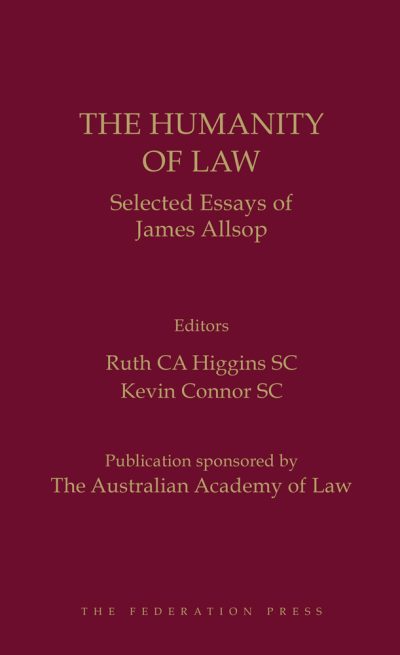









.jpg)

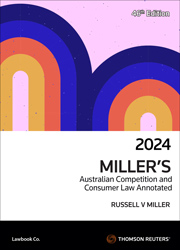
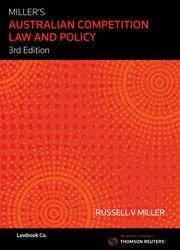

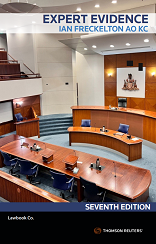








 Professor Legg's earlier publication, with James Metzger, of The Australian Class Action , is noted below.
Professor Legg's earlier publication, with James Metzger, of The Australian Class Action , is noted below. 



.jpg)





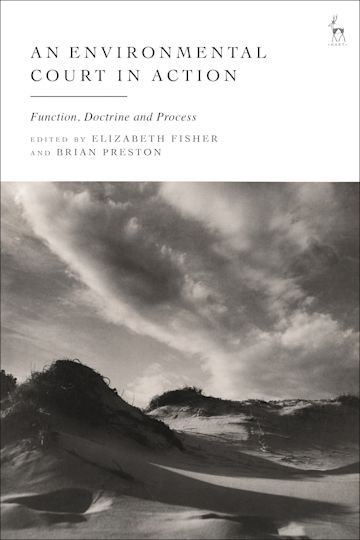







.jpg)






